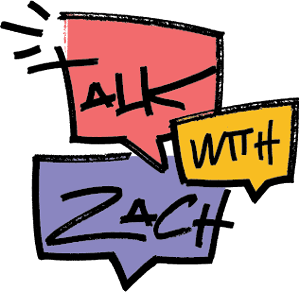I’ve always hated drama. If friends were angry with each other, I’d find a way to get as far away as possible from the conflict. If I was upset about something, I was all about letting things go, not bringing things up, and letting things glide by. “Don’t worry, be happy,” right?
But what I came to realize is that as much as I wanted to be the queen of chill, I was actually the queen of avoidance.
What’s wrong with avoiding conflict? Here are some examples:
–In group projects, when other people didn’t do the work, instead of confronting them, I’d stay up late or work all weekend doing the work for them. This left me feeling stressed out and resentful, and on top of that, it took all of my energy to pretend that I was fine with it. The more I did this, the more people took advantage of me.
–A friend would make plans and then repeatedly show up late. Instead of saying that it felt disrespectful of my time, I’d say, “No worries!” and smile like I hadn’t been stewing for the past 45 minutes. Then I’d avoid her and when she asked what was wrong, I’d pretend everything was fine, because I didn’t want to “make a big deal” over her leaving me waiting.
–I was thinking about running for an open student government position, but when a friend mentioned that she was running and wanted it really badly, I decided not to run because it might cause tension between us and put our mutual friends in an awkward position. In fact, I never even told anyone I had interest in running. Then I was upset when I missed out on the opportunity.
–I started hanging out with a guy who I realized liked me more than I liked him. But I kept hanging out with him because I didn’t know how to tell him I wasn’t interested anymore. The longer I hung out with him, the more I felt like it was easier to avoid the truth than to hurt his feelings. Let’s just say, it didn’t end well and would have ended much better if I hadn’t been so avoidant.
Then this summer I worked as a camp counselor. Every day, the kids under my care would have some conflict–about whose turn it was, or who sat in somebody’s place at lunch, or why somebody they’d been friends with for two weeks was now hanging out with someone else. Suddenly I found myself helping these kids talk through their conflict—something I couldn’t seem to do in my own life—and I saw how doing this made things better, not worse.
So when another counselor kept interrupting my breaks by asking me to do favors for her, I spoke up. I told her that I really needed my breaks, and that if she needed help, maybe she could find someone else or ask me when I wasn’t supposed to be relaxing.
I braced for a negative response, but instead, she was totally understanding and said she hadn’t even realized how much she was asking of me. The best part is that having this conversation made us closer friends, and we continued to help each other out in ways that worked for both of us for the rest of the season.
Going into this school year, I feel more confident and calm because now I know how to tackle issues head on instead of avoiding them. It turns out addressing issues doesn’t create drama – it creates stronger relationships and inner peace.
I encourage everyone reading this to give it a try!

